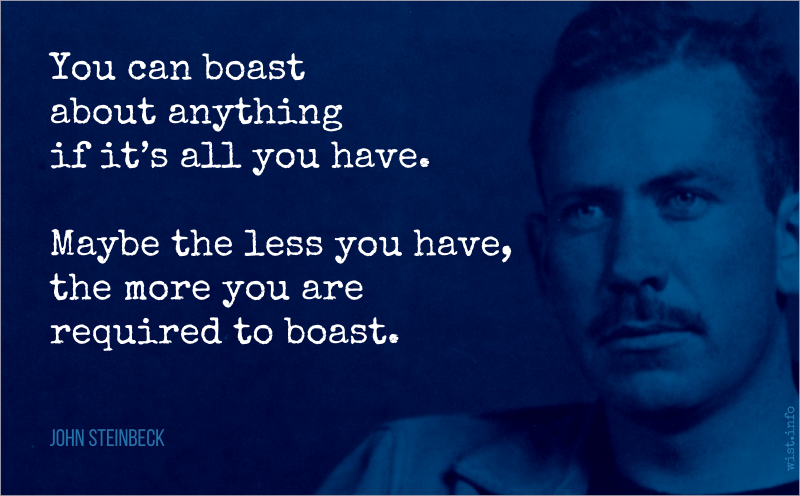All passions exaggerate; it is only because they exaggerate that they are passions.
[Toutes les passions sont exagératrices, et elles ne sont des passions que parce qu’elles exagèrent.]
Nicolas Chamfort (1741-1794) French writer, epigrammist (b. Nicolas-Sébastien Roch)
Products of Perfected Civilization [Produits de la Civilisation Perfectionée], Part 1 “Maxims and Thoughts [Maximes et Pensées],” ch. 1, ¶ 72 (1795) [tr. Mathers (1926)]
(Source)
(Source (French)). Alternate translations:
All passions are exaggerated, otherwise they would not be passions.
[tr. Hutchinson (1902)]
All of the passions lead to exaggeration. That is why they are passions.
[tr. Merwin (1969)]
All passions involve excess, in fact that's what makes them passions.
[tr. Parmée (2003), ¶59]
All passions exaggerate, and they are only passions because they exaggerate.
[tr. Sinicalchi]
Quotations about:
exaggeration
Note not all quotations have been tagged, so Search may find additional quotes on this topic.
The reports of my death are greatly exaggerated.
Mark Twain (1835-1910) American writer [pseud. of Samuel Clemens]
(Paraphrase)
(Source)
This was based on a statement Mark Twain made to a British correspondent of the New York Journal (in some incorrect versions the New York Evening Sun) who tracked him down in London upon reports in America that Twain was dying there. Twain wrote out a note saying, "James Ross Clemens, a cousin of mine, was seriously ill two or three weeks ago in London but is well now. The report of my illness grew out of his illness; the report of my death was an exaggeration." This response was published 2 June 1897, and the longhand note is still preserved.
In 1906, Twain recalled the incident for his memoir that he told the reporter, "Say the report is exaggerated." On retyping the manuscript some months later, he scribbled the word "greatly" in front of "exaggerated," and it was published that way in The North American Review.
In Albert B. Paine's Mark Twain, a Biography, Vol. 2, ch. 197 (1912), the story is that Twain told the correspondent, "Just say the report of my death has been grossly exaggerated."
Further discussion:
There is another sort of lies, inoffensive enough in themselves, but wonderfully ridiculous; I mean those lies which a mistaken vanity suggests, that defeat the very end for which they are calculated, and terminate in the humiliation and confusion of their author, who is sure to be detected. These are chiefly narrative and historical lies, all intended to do infinite honor to their author. He is always the hero of his own romances; he has been in dangers from which nobody but himself ever escaped; he as seen with his own eyes, whatever other people have heard or read of; he has had more bonnes fortunes than ever he knew women; and has ridden more miles post in one day, than ever courier went in two. He is soon ridiculed, and as soon becomes the object of universal contempt and ridicule.
Lord Chesterfield (1694-1773) English statesman, wit [Philip Dormer Stanhope]
Letter to his son, #126 (21 Sep 1747)
(Source)
People who have never really wielded power always have illusions about how much those who have power can really do.
Thomas Friedman (b. 1953) American journalist, columnist, author
From Beirut to Jerusalem, ch. 8 (1989)
(Source)
You can boast about anything if it’s all you have. Maybe the less you have, the more you are required to boast.
You mustn’t exaggerate, young man. That’s always a sign your argument is weak.
Bertrand Russell (1872-1970) English mathematician and philosopher
“Redbook Dialogue,” interview by Tommy Robbins, Redbook (1964-09)
(Source)
Reprinted in Russell Society News, #37 (1983-02), p. 24.








